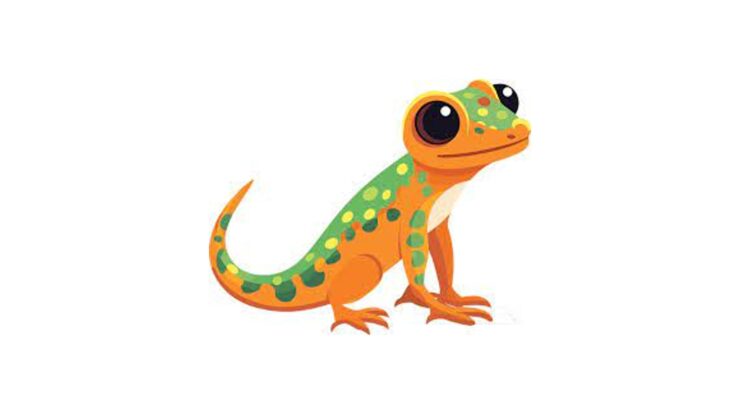
Hey there, fellow gecko enthusiasts! It’s your scaly friend, Mimnky, and today, we’re tackling a common concern many of you might have faced – when your beloved leopard gecko refuses to eat.
Don’t worry; I’m here to shed some light on the matter and provide you with helpful tips and insights to get your gecko back on track.
1. Temperature Troubles:
One of the first things to check when your gecko isn’t eating is the temperature in their enclosure. We leopard geckos are pretty particular about our comfort.
Ensure that the basking spot is nice and warm, around 90°F (32°C), and that there’s a cooler hiding spot at around 70-75°F (21-24°C). The right temperature is crucial for our digestion and overall well-being.
2. Stressful Situations:
Changes in our environment, such as new pets, noisy surroundings, or excessive handling, can stress us out and affect our appetite.
Give us some time to acclimate to changes, and provide a calm, quiet space where we can feel safe. Limit handling until we start eating regularly again.
3. Shedding Time:
During shedding, we might lose our appetite. It’s like we’re getting ready for a makeover! To help us with the shedding process, create a humid hide in our enclosure.
This hide, filled with damp moss or paper towels, provides the extra humidity we need for a successful shed.
4. Seasonal Slumps:
Just like many animals, we leopard geckos can go through periods of reduced appetite.
It’s a bit like taking a break from the buffet. Keep an eye on our weight to make sure we’re not losing too much. Sometimes, we’ll start eating again when we’re good and ready.
5. Health Concerns:
If we’re refusing food for an extended period, it could be a sign of an underlying health issue, such as respiratory infections or parasites.
If you notice other concerning symptoms like weight loss or lethargy, it’s crucial to consult a reptile-savvy vet. They can provide a proper diagnosis and recommend appropriate treatment.
6. Inadequate Diet:
Ensure you’re offering a variety of appropriately sized, gut-loaded insects. We geckos can be a bit finicky, and changing up the menu might entice us to eat.
Don’t forget to dust the insects with calcium and vitamin supplements to give us those essential nutrients.
7. Age and Gender:
Keep in mind that young geckos and females might eat less frequently than adult males. Consider their age and gender when assessing their eating habits.
It’s all part of our natural behaviour.
8. Enclosure Conditions:
Take a look at our living quarters. Is the enclosure spacious, secure, and properly set up with hiding spots? Make sure the substrate is safe and clean.
A comfortable environment is crucial for our well-being and might encourage us to eat.
9. Breeding Behaviour:
If you have male and female geckos together, they might be more interested in each other during breeding season than in their meals.
Separate them if you’re not actively breeding to reduce stress.
10. Consult a Vet:
If we continue to refuse food for an extended period or if there are other concerning symptoms like weight loss or lethargy, don’t hesitate to consult a reptile-savvy veterinarian.
They can perform a thorough examination and recommend appropriate treatment if necessary.
Remember, patience is key when dealing with a gecko that’s not eating. Keep offering food, maintain the right environmental conditions, and monitor our behaviour closely.
We geckos appreciate your care and attention, and with a little TLC, we’ll hopefully be back to our munching selves in no time! 🦎💚


